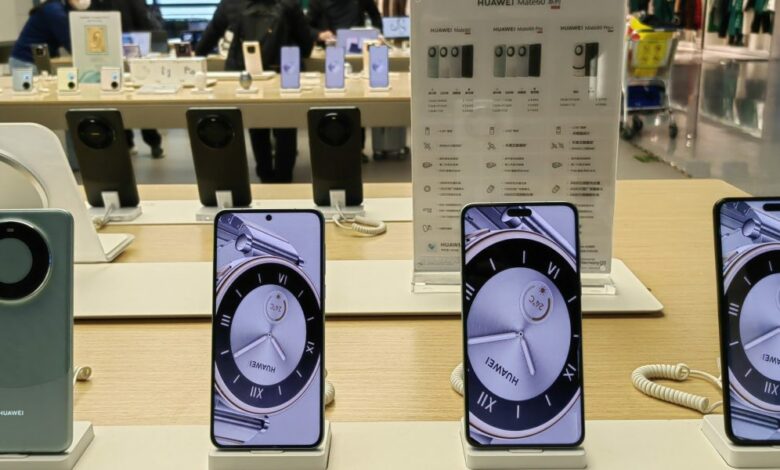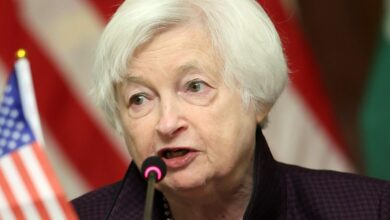Huawei eats into Apple’s market share in China, according to new research


U.S. Secretary of Commerce Gina Raimondo dismissed Huawei’s new 5G smartphone over the weekend as having “not nearly as good” a processor as what’s available in the U.S. But there’s one thing the U.S-blacklisted company’s new phone may be really good at: taking sales from Apple.
The quiet launch of Huawei’s Mate 60 Pro is transforming China’s phone market as consumers shift to local brands. Apple’s shipments tumbled 19% year-on-year in the first quarter of the year, the company’s worst performance since 2020, according to data from Counterpoint Research.
The U.S. company now has market share of around 15.7%, down from 19.7% a year ago. The drop puts Apple in third place in China’s smartphone market, behind Vivo and HONOR.
Apple’s decline contrasts with Huawei’s rise. The Chinese smartphone maker’s sales in the first quarter of 2024 jumped by almost 70%. It now has 15.5% of China’s phone market, putting it just behind Apple. Counterpoint partly attributed Huawei’s growth to the company’s 5G smartphone, giving the tech giant “a massive share in the $600+ premium segment.”
HONOR, a former Huawei subsidiary spun off in 2020, is in second place after its sales grew 11.5% year-on-year.
Apple led the Chinese smartphone market for 2023 as a whole, ahead of Vivo, Oppo and Xiaomi, according to Counterpoint data,
Fierce competition in China helped to knock Apple from its perch as the top global seller of smartphones last quarter, according to an IDC report released last week. South Korea’s Samsung is now in first place.
Huawei’s rise
Chinese consumers could be attracted by the price of Huawei’s 5G phone, which is cheaper than Apple’s iPhone. But Chinese media also promoted the Mate 60 Pro, which features a domestically-produced advanced chip, as a source of national pride upon its launch last year.
Huawei sold 1.6 million Mate 60 Pro handsets in the six weeks following its launch, and sales have remained strong since.
A resurgent Huawei is just one of the challenges to Apple’s business in China. The iPhone maker is dealing with greater regulatory scrutiny: Beijing reportedly told government officials and employees at state-owned enterprises to stop using iPhones, and regulators ordered Apple to remove several foreign programs, like WhatsApp, Threads and Signal, from its China app store last week on “national security concerns.”
Apple is also trying to diversify its supply chain to rely less on Chinese suppliers. CEO Tim Cook made a whirlwind visit to Southeast Asia last week which may have been an effort to “hedge [Apple’s] supply chain bets,” analysts previously told Fortune.
Source link




